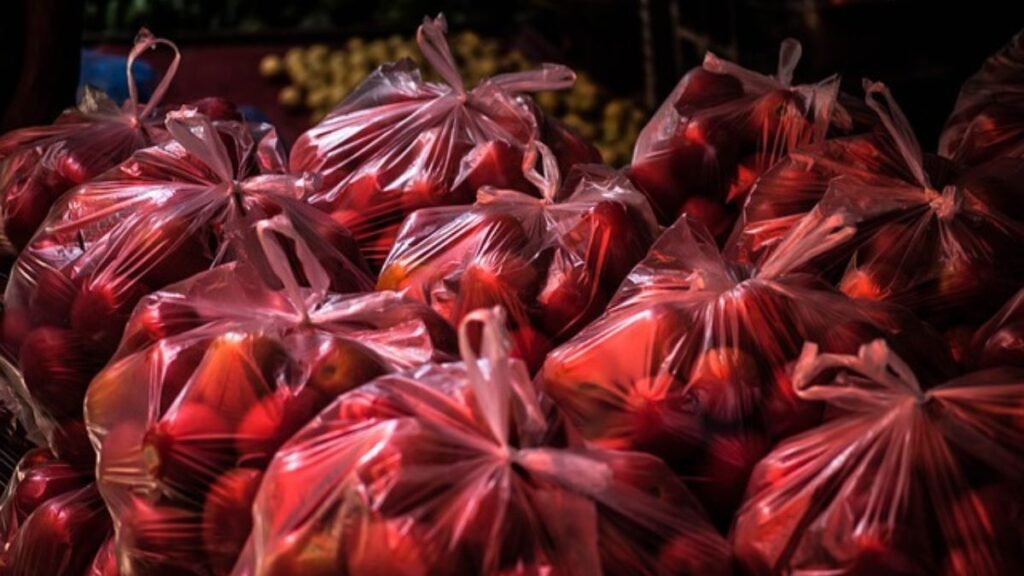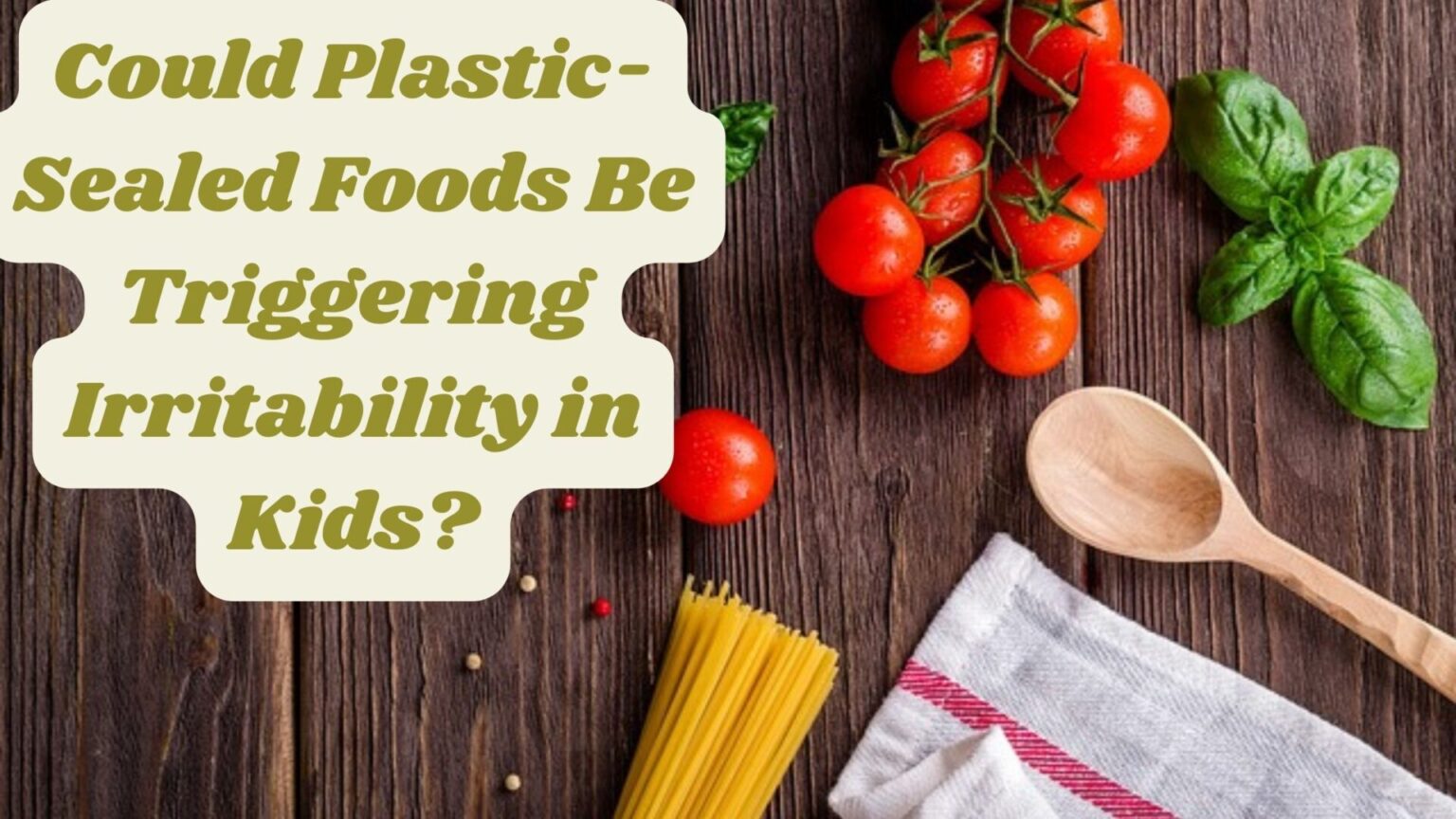Introduction:
Unveiling “The Salty Truth”: Could Plastic-Sealed Foods Be Triggering Irritability in Kids?

In an age where plastic packaging is ubiquitous, concerns about its impact on human health are gaining momentum. Among these concerns, a new question arises: could plastic-sealed foods be contributing to irritability in children? This inquiry, encapsulated in the provocative phrase “The Salty Truth,” delves into the potential link between plastic-packaged foods and behavioral changes in children. As we unravel this issue, it becomes apparent that our modern reliance on convenience may come at a cost to our well-being, particularly that of our youngest generation.
Could plastic-sealed foods be responsible for heart attacks and diabetes in children?
There is no positive evidence yet to directly link plastic-sealed foods to heart attacks and diabetes in children. However, it is important to remember that scientific research is an ongoing process, and new studies may occur along the way.
Certain types of plastics that are used in the production of plastic packaging, such as bisphenol A (BPA) and phthalates, may contain concealed chemicals that can seep into food, especially when exposed to high temperatures or light. These chemicals have been associated with endocrine disruption and other health problems, but it is not yet established if they have a direct link to heart attacks and diabetes.
Health problems like heart attack and diabetes are complex conditions influenced by several factors, such as heredity, diet, lifestyle, and overall health. It is essential to seek advice from healthcare professionals or check scientific libraries for new research findings.
If you have specific concerns about your child’s health or dietary habits, it is recommended that you seek advice from a health professional to consider the latest and relevant information.
Which plastic-sealed foods affect children’s behavior?
Certain plastics used in food packaging may contain chemicals, such as bisphenol A (BPA) and phthalates, which have been studied for their potential impact on behavior, especially in children. Here are some types of plastic-sealed foods that may be associated with affecting children’s behavior:
- Packaged Snacks:
- Individually wrapped snacks or convenience foods often come in plastic packaging that may contain harmful chemicals.
- Bottled Beverages:
- Drinks sold in plastic bottles, especially those exposed to heat or sunlight, can potentially have leached chemicals from the plastic.
- Processed and Packaged Meals:
- Ready-to-eat meals that come in plastic containers or have plastic film coverings could contribute to exposure.
- Canned Foods:
- Some canned foods have a plastic lining that contains BPA, which can leach into the food over time.
It’s important to note that while there is evidence suggesting a link between certain chemicals in plastics and behavioral changes, the impact can vary among individuals. Factors such as the type of plastic, duration of exposure, and an individual’s sensitivity may all play a role.
Parents and caregivers concerned about the potential effects of plastic-sealed foods on children’s behavior may consider the following:
- Choose Fresh and Whole Foods: Opt for fresh fruits, vegetables, and whole foods that require minimal packaging.
- Avoid Heavily Processed Snacks: Reduce the consumption of heavily processed and packaged snacks, which often come in plastic.
- Look for Safer Packaging: Explore food products that use alternative, eco-friendly packaging materials.
- Check for Labels: Be aware of product labels and choose items that are labeled as BPA-free or have minimal chemical additives.
- Support Advocacy for Safer Packaging: Stay informed and support initiatives advocating for safer and more transparent food packaging practices.
It’s crucial to stay updated on the latest research findings and consult with healthcare professionals if there are specific concerns about children’s behavior and potential exposure to harmful substances.
What foods calm hyperactive children?

While there is no one-size-fits-all solution, certain foods and dietary strategies may help calm hyperactive children. It’s essential to note that individual responses to food can vary, and consulting with a healthcare professional or a registered dietitian is recommended for personalized advice. Here are some general suggestions:
- Whole Foods:
- Emphasize a diet rich in whole, minimally processed foods. Fresh fruits, vegetables, whole grains, and lean proteins provide essential nutrients without artificial additives.
- Omega-3 Fatty Acids:
- Foods rich in omega-3 fatty acids, such as fatty fish (salmon, mackerel, sardines), flaxseeds, chia seeds, and walnuts, may support cognitive function and mood regulation.
- Complex Carbohydrates:
- Opt for complex carbohydrates like whole grains (brown rice, quinoa, oats) that provide a steady release of energy, helping maintain stable blood sugar levels.
- Protein-Rich Foods:
- Include protein-rich foods in each meal to support sustained energy levels. Good sources include lean meats, poultry, eggs, dairy products, legumes, and nuts.
- Magnesium-Rich Foods:
- Magnesium is believed to play a role in calming the nervous system. Foods high in magnesium include leafy green vegetables, nuts, seeds, and whole grains.
- Fruits and Vegetables:
- Provide a variety of colorful fruits and vegetables rich in vitamins, minerals, and antioxidants. These can contribute to overall health and well-being.
- Hydration:
- Ensure your child stays adequately hydrated by drinking plenty of water throughout the day. Dehydration can impact mood and cognitive function.
- Limit Sugar and Artificial Additives:
- Reduce the intake of sugary foods and beverages, as well as those containing artificial colors and preservatives. These additives may affect behavior in some children.
- Probiotic-Rich Foods:
- Probiotics, found in fermented foods like yogurt, kefir, and sauerkraut, may positively influence gut health, which is linked to overall well-being, including mood.
- Balanced Meals and Snacks:
- Aim for balanced meals and snacks that include a combination of carbohydrates, proteins, and healthy fats to provide sustained energy.
Conclusion:
“The Salty Truth” behind plastic-sealed foods and their potential impact on children’s irritability raises important questions about the choices we make for our families. As consumers, being mindful of packaging materials, opting for safer alternatives, and advocating for transparent labelling can contribute to a healthier and happier future for our children.
FAQs:
- What exactly is meant by “plastic-sealed foods”?
- Plastic-sealed foods refer to items packaged in plastic materials, often with airtight seals, commonly found in supermarkets and grocery stores.
- How could plastic-sealed foods affect children’s irritability?
- Some research suggests that certain chemicals present in plastic packaging, such as phthalates and bisphenol A (BPA), may leach into food, potentially disrupting hormonal balance and neurodevelopment, which could manifest as irritability or behavioral changes in children.
- Are there specific types of plastic packaging that pose a greater risk?
- Studies indicate that plastics labeled with recycling codes 3 (polyvinyl chloride or PVC), 6 (polystyrene), and 7 (other, including polycarbonate and BPA-containing plastics) may be of particular concern due to their potential to release harmful chemicals.
References:
- Trasande, L., Zoeller, R. T., Hass, U., Kortenkamp, A., Grandjean, P., Myers, J. P., … & Heindel, J. J. (2016). Estimating burden and disease costs of exposure to endocrine-disrupting chemicals in the European Union. The Journal of Clinical Endocrinology & Metabolism, 101(4), 1245-1255.
- Heindel, J. J., & Vandenberg, L. N. (2015). Developmental origins of health and disease: a paradigm for understanding disease cause and prevention. Current Opinion in Pediatrics, 27(2), 248-253.
- Gallon, C., Charles, M. A., & Heude, B. (2019). Prenatal and early postnatal exposure to food contaminants such as dioxins and polychlorinated biphenyls (PCBs) may influence obesogenic risk in child development. The Journal of Clinical Endocrinology & Metabolism, 104(6), 2093-2111.
- Geens, T., Aerts, D., Berthot, C., Bourguignon, J. P., Goeyens, L., Lecomte, P., … & Covaci, A. (2012). A review of dietary and non-dietary exposure to bisphenol-A. Food and Chemical Toxicology, 50(10), 3725-3740.
- Hartle, J. C., Navas-Acien, A., Lawrence, R. S., & Apelberg, B. J. (2009). A synthesis of health effects of exposure to bisphenol A. Reproductive Toxicology, 28(2), 132-138.






